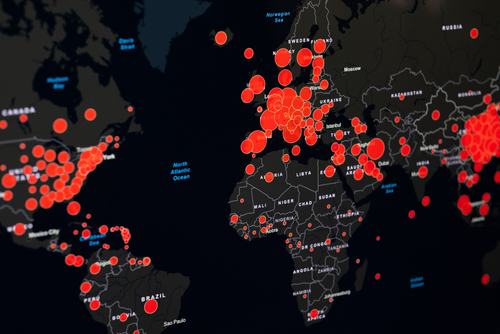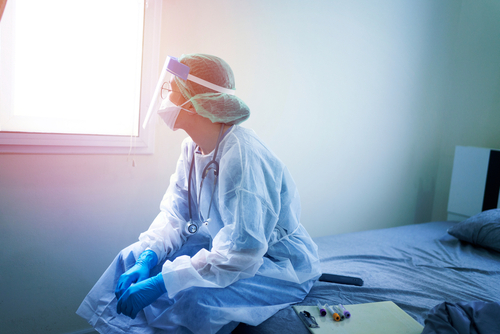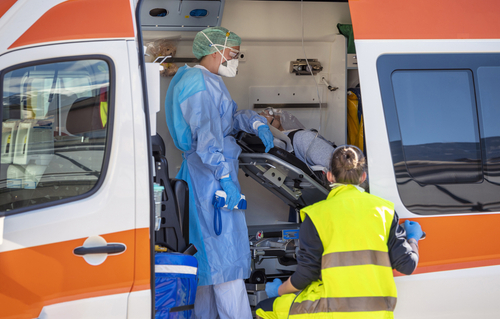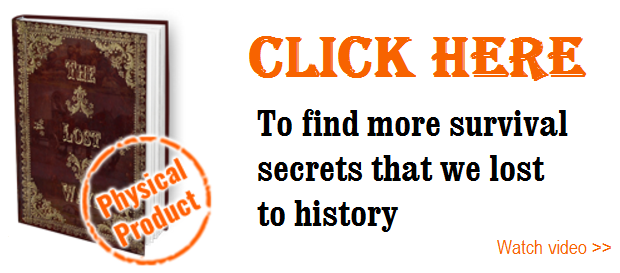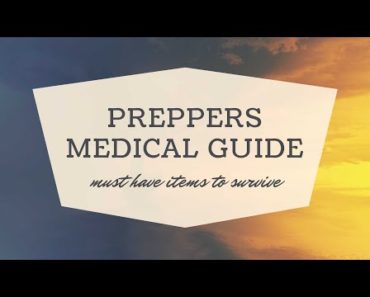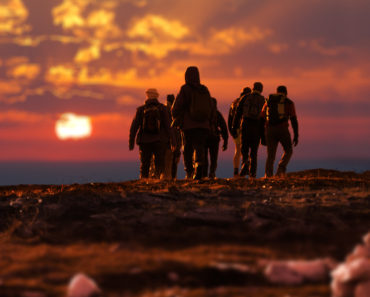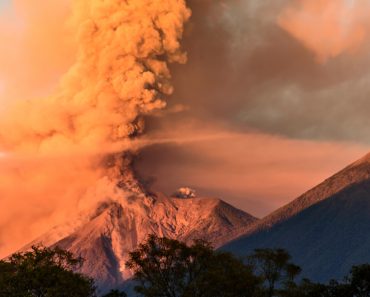In case you hadn’t noticed, it appears that the second wave of COVID-19 is upon us already.
Not only is it upon us, but it appears to be worse than the first wave. There are counties I can point to, where the number of new cases per day during the last week has been as much as seven times as high as it was at the peak of the first surge. If that’s not something to be concerned about, I’m not sure what is.
If we look back at when we all first became aware that the novel Coronavirus was sweeping the globe as a pandemic, medical experts were warning of the need to “flatten the curve.” Granted, that was based upon computer modeling which said that the disease was going to be much more devastating than it turned out to be. But that was the narrative back then and why so much of the country shut down.
Let me take an aside here for a second, in defense of the doctors who created those computer models. There are a few things we need to realize about them. Number one is that they were creating models based upon very little information; all they had to go with was information coming out of China, which has since been proven to be false. Number two is that the models were presented as “worst case” scenarios, which we never reached. And the number 3 is that a large part of the reason why we never reached that worst case was that our governments, at all levels, put measures into place to mitigate against that.
I remember saying back then that no matter how it turns out, there would be those saying that it was wrong. Some would say that the government did too much, while others would be saying that they did too little. Well, we have both, and in some cases, both coming from the same mouth.
Going back to the beginning, back when our medical experts started talking about flattening the curve, they also told us that there would be a second wave, once restrictions were lifted. But that was okay, they said because the hospitals wouldn’t become overwhelmed; flattening the curve would spread out the number of cases over a longer period of time, ensuring there would be enough hospital beds to treat all those who came down with the disease.
That narrative changed slightly, as the leading experts prognosticated that the second wave would be in the fall when flu season normally begins. We could all see the sense in that because we were accustomed to the flu dying down in the summertime and coming back in the fall.
This even played into the various states’ plans for opening back up. As state governors and their staffs developed plans, those who weren’t waiting for a vaccine to come out decided in June because the summer sun and heat made it an ideal time. Based upon historical evidence with other viruses, we could expect the incidents of new cases to wane in the summer, picking back up in the fall.
The reason for this summertime lul is twofold. First, the UV index is higher in the summertime, than it is any other time of the year. Since UV light is uniformly deadly to both bacteria and viruses, any viruses in the open would be easily killed, whether on our cars or on our clothes. Secondly, we tend to spend more time outdoors in the summertime, rather than cooped up in our houses, where the disease can easily spread from one person to the next.
There’s just one thing… the disease didn’t cooperate and things didn’t happen as we expected. Yes, the various state’s lockdowns did help to slow the spread of the virus, keeping out hospitals from becoming overwhelmed. That part worked extremely well. What didn’t work well is that the disease didn’t cooperate and remain idle during the heat and bright sun of the summertime, waiting for the fall to come back. We’ve got a surge in the disease now, long before we expected to.
So What Went Wrong?
While everybody is busy casting blame at their favorite political target for the rise in new cases, I find myself taking a different route. While I will have to say that none of those government officials did a perfect job, I also recognize that this is a case where there is no such thing as a perfect job. Therefore, I don’t lay blame at their feet. I don’t feel that’s fair.
About the only thing I blame the government for is the unclear and often confused messages that they are sending out. There was a great video satire a woman did, where she was taking a part of a news anchor, trying to clarify the situation. But everything she said contradicted itself. That’s the message we’ve received.
Probably the worst was the message about masks. At first, we were told not to wear masks, because it didn’t do any good. But that wasn’t the real message; it was “don’t wear masks, because we don’t have enough for medical personnel.” So in that case, they flat-out lied to us. Then, once they finally started telling us to wear masks, they kept vacillating on the message. I have heard the same officials telling us “don’t’ wear masks,” “wear masks,” “only use cloth masks” and “cloth masks don’t do any good.” Which message are we supposed to believe?
The result of all this is that the general population, many of who don’t trust our government officials to start with, not having any idea of what to do. So what have they done? In many cases, people have done absolutely nothing. They’ve gone about their lives, acting like everything is normal.
So, who’s at fault? We all are.
As I look around, I see a few people who are taking the pandemic seriously. Oh, I’m sure there are places in the country where they are taking it more seriously than they are in my city; but overall, we Americans aren’t taking it seriously. Most people are probably thinking some variant of, “Oh, it’s there, but it won’t get me.”
Then there’s the group who are thinking that now that lockdown orders have been lifted, everything is fine; the pandemic is over. They’ve gone back to their restaurants, bars, and night clubs as if nothing has happened. In doing so, they’re just helping the spread of the disease.
Even worse than that, there are those who are actively promoting the message that it was all a hoax; that we didn’t need to shut down; and that we don’t need to wear masks. While they are entitled to their opinion and even entitled to express it publically, they aren’t helping the situation.
Regardless of what anyone says, masks work. But they have to be the right kind of masks. Surgical masks aren’t what you need; you need cloth masks. And those cloth masks have to be thick enough to block out a strong light. If not, they won’t be thick enough to catch the droplet of virus-rich spittle that infected people are breathing and coughing out of their mouths.
The analogy of the mask that some people are using is like trying to catch it with a chain-link fence is a false one. We aren’t trying to catch individual virus particles, which would be almost impossible; we’re trying to catch aerosol droplets that contain those virus particles. That’s why cloth masks are important. The cloth absorbs the droplet, capturing the virus in the process.
The other false narrative that’s going around is how wearing a mask can make you sick. I suppose that’s true if you have lung problems already. It’s probably also a problem for those who are trying to wear a mask while jogging. But if doctors and nurses can wear them all day long, without a problem, I think the rest of us can too.
Those masks need to be worn whenever you are around anyone who you don’t know for sure is virus-free. But those masks also need to be cleaned. If you or I are wearing a mask and the mask does its job, catching those droplets, it is contaminated. Before being used again, it has to be decontaminated. So put it in the wash and wear another one. Have enough masks to wear a different one each day of the week, until you do the wash again.
Let me back that up with one number. Only 12,602 people in South Korea have come down with COVID-19. They were the first country to start wearing masks. Now, I realize they’re a much smaller country than we are, so let’s put that in perspective. That 12 thousand-odd people works out to just 0.025% of their population. By comparison, 0.76% of our population has come down with the disease, that’s 30 times as much, as a percentage of our population! Japan, which also started wearing masks early on, has had only 0.014% of their population infected, 1/54 of our percentage!
Get Ready for More
It is clear that COVID-19 is not going away anytime soon. Even with all the work that is being done to come up with a vaccine, there is little chance that one will be fielded anytime soon. The fastest our medical community has ever come up with, tested, produced, and released a new vaccine has been four years. Why would anyone expect that it will take less time with this one?
Knowing that this disease is going to be with us for a while, and also knowing that it is once again on the rise, we need to get ready. Now, before everyone else realizes that things are getting bad again, we need to beat the rush and renew our stocks of those items that we’ve used the last few months.
It has taken four months for the grocery stores to get some things back in stock, and there are still items that aren’t on the shelves. Have you tried looking for Clorox wipes lately? I haven’t seen them since January. Alcohol and disinfectants are still running out on a regular basis. Hand sanitizer seems to be pretty widely available, but you need to check it to be sure that it’s what you need. Not all hand sanitizers are created equal. Liquid antibacterial soap isn’t the same as a hand sanitizer and won’t work the same.
I don’t expect this second wave to stop till sometime next year if it even stops then. We’ll be heading into flu season soon; and once that happens, there’s no reason to think that COVID will stop spreading before spring rolls around again.
What this means is that this second wave is going to last a lot longer than the first one did. So, whatever you used in the way of personal protection equipment (PPE), you’d better make sure you have plenty of it. I would concentrate on things that are reusable, like fabric masks, rather than disposable N-95 masks. Of course, that can only be taken so far; you’re not better off with heavy rubber gloves than you are with disposable ones.
I’d figure on about four times whatever you’ve used in the last couple of months for starters. While that may not end up being enough; it should be enough to keep you going through the next wave of shortages. Later, when the stores catch up again, you can always get more.
Don’t forget to check your food stocks either. If you’ve ended up using any of that food to get through the last few months, you should restock now, while the stores are pretty much full. There’s no way of knowing if there will be another run on the grocery stores or if we’re going to see shortages caused by food processing plants shutting down. That’s already happened once, so there’s no reason to think that it won’t happen again.
Finally, don’t let your guard down. I see people all around me, who have quit taking the appropriate precautions; even amongst those who are concerned about the disease. They’ve become comfortable with living in a COVID-19 world, so they aren’t doing the things they were earlier, whether intentionally or for lack of focusing on the risk the disease causes for all of us. In doing so, they are increasing the chances of getting the disease, as well as passing it on to others.
I don’t know about you, but I don’t want to be responsible for spreading the disease. I’ve already self-quarantined twice; the first time because I had what turned out to be the flu and the second time because a relative was potentially exposed to the disease. If that’s what I have to do, in order to protect others, then that’s a price I’m willing to pay. What about you?


